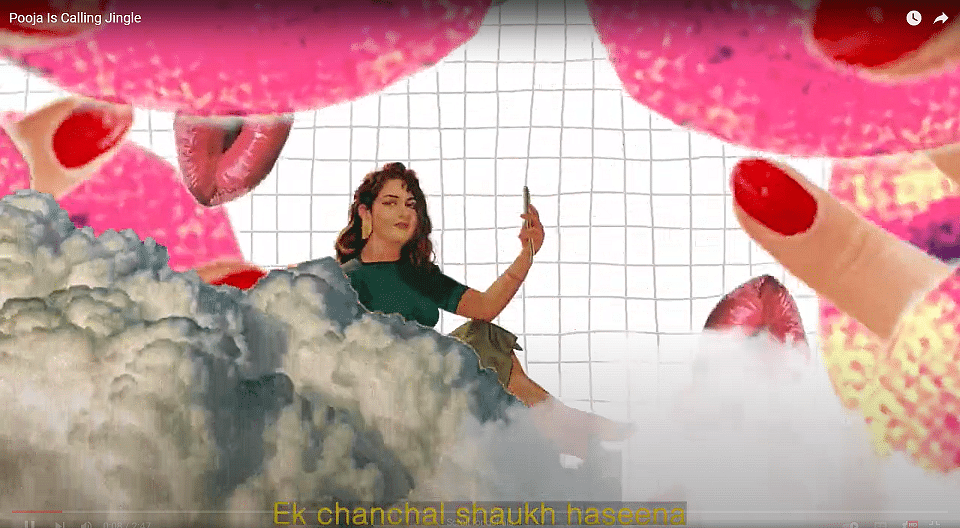
A tech-cum-arts project has launched a campaign against sextortion. ‘Pooja is calling’ is both the name of the campaign and the jingle it has dropped on YouTube.
The project is aimed at sensitising people to sex scams online, and break the taboo about the topic.
Creative technologist and artiste Hasan S, sound artiste and composer Radhapriya Gupta and prototyper-user researcher Ojasvi Gupta are helming the project, which won the C3 Grant from Goethe-Institut Max Mueller Bhavan, Kolkata, BeFantastic, Bengaluru, and ZKM, Germany.
The project stems from Hasan’s experience with a Pooja he met on a dating app. She had a flower pic as her display photo.
“After matching on the app, she requested that we move to WhatsApp. No sooner had we switched to WhatsApp did she ask me to come on a video call, which I declined. From then, every hour Pooja started calling me over video. I felt something was wrong. At around 11 pm, I decided to take the call,” recalls the 28-year-old, who moved back from Bengaluru to his hometown Kota in Rajasthan after the Covid-19 crisis struck.
The caller turned out to be a naked woman. “Since I have a background in computer hacking, I could see that her face was pixelated, as if somebody’s face had been morphed onto a porn video. Then Pooja asked for intimate photos from me but I cancelled the call,” he says.
It was not an isolated incident, Hasan would soon learn. “I found a boy in my circle who was scammed by ‘Pooja’ and her gang. The modus operandi is that the woman asks for nudes and records the video call. The video is later used to blackmail the victims for money. In that boy’s case, the gang kept on extorting money,” he says.
The jingle, catchy like a ringtone and accompanied by a video that reminds you of retro films, retells how scamsters like Pooja trap their victims and urges people to be vigilant online.
“After the jingle came out (on February 6), many people shared similar experiences with us on Instagram. A majority were male,” he says.
Hasan says, “The larger idea is to demonstrate how sextortion and other cybercrime calls go. Our website will also show how family and friends should talk to victims so they don’t feel ashamed, or intimidated to approach law enforcement agencies.”
Hasan was not intimidated though. “I am glad Pooja called because she called the wrong person,” he signs off with a hearty laugh.
Website coming up
The jingle, ‘Pooja is calling’, is one of the three elements of the campaign. Soon, the team will launch the track for Instagram for people to make reels and “make it a talking point”. Also, an AI-powered website is in the works to simulate the experience of chatting with scamsters, taking note of the red flags, and finding your way out of them. Poojaiscalling.com will go live in a few days.
‘Sextortionists target men’
Sextortion scam featured in the ‘Pooja is calling’ jingle is the most common among sex scams, Metrolife learnt from a cybercrime police officer from Bengaluru. Such scams are mainly executed by rackets in and around Kolkata. Men are mostly targeted in sextortion scams whereas women are targeted in revenge-related crimes, he adds. To report the crime, dial emergency number 112 and then 3, which is dedicated for cyber crimes, or call 155260, a national helpline to report cyber frauds, or visit the nearest cyber crime police, he advises.